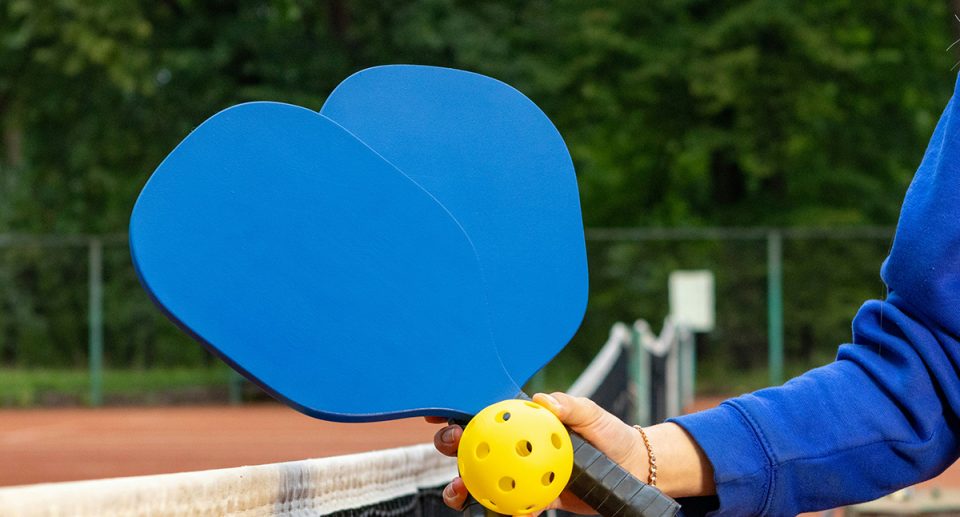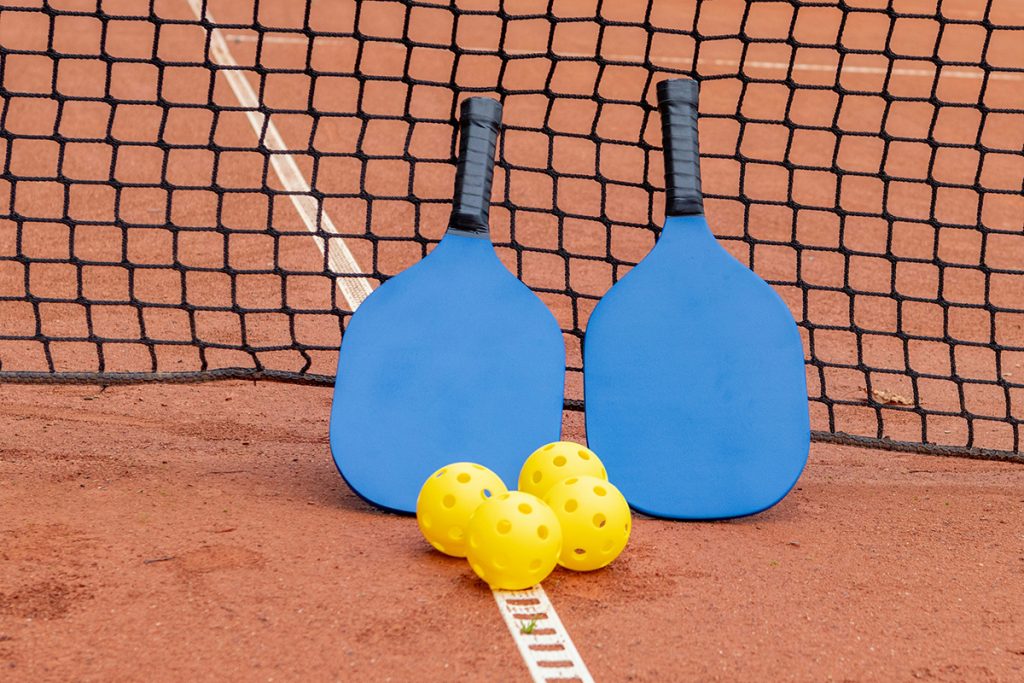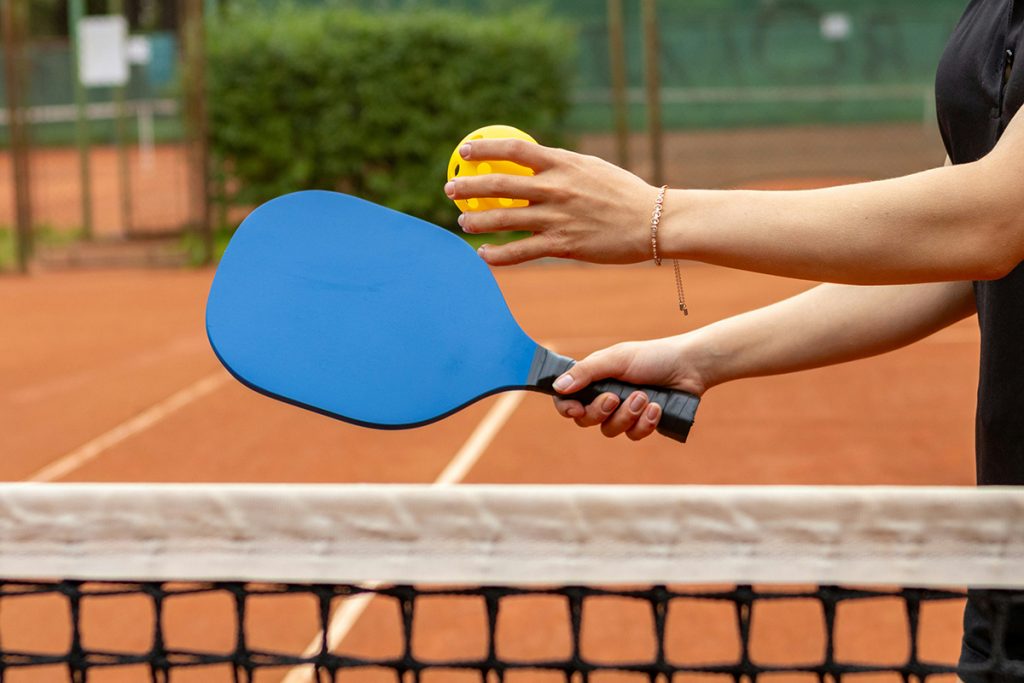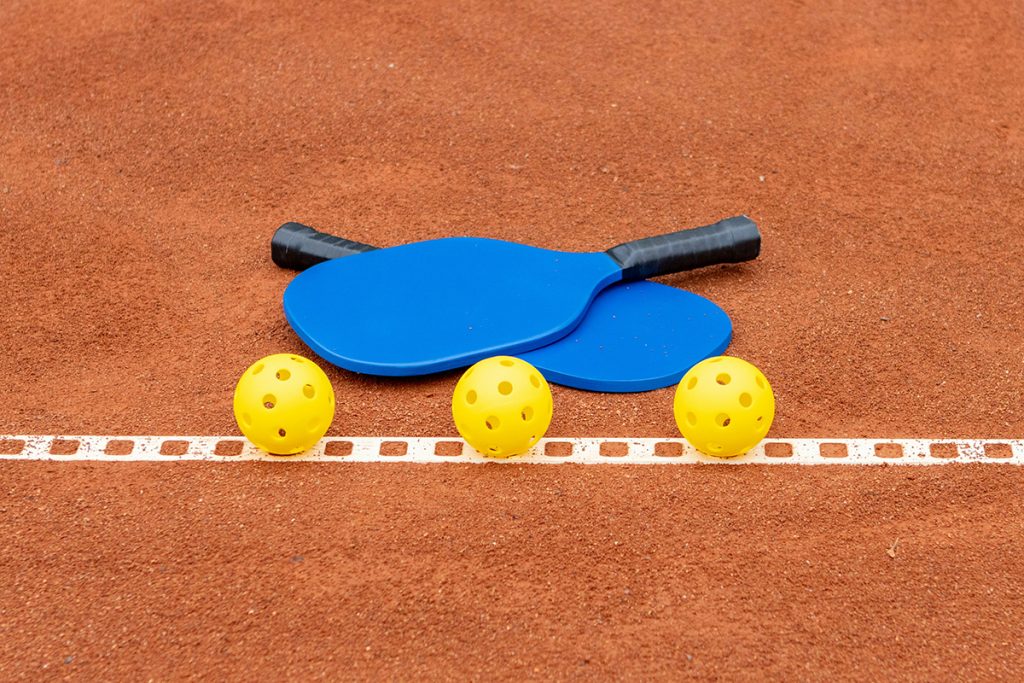5 Health benefits of playing pickleball

Pickleball, a relatively new sport invented in 1965, is both beginner-friendly and fun. While it’s less strenuous than tennis, it involves more movement than ping pong. With its slower pace and smaller court, you might wonder: is pickleball actually good for you?
Pickleball is a moderately-paced game, played either singly or in doubles, that combines elements from tennis, badminton, and ping pong. The court is smaller than a tennis court but the same size as a badminton court.
One of the fastest-growing recreational sports in the US, pickleball is popular for good reasons. It’s enjoyable, energizing, and social. The rules are simple enough to learn in a single session, and all you need is a paddle and a perforated plastic ball, making it accessible to players of all ages, skill levels, and income levels.
Similar to badminton, pickleball features an underhand serve struck below the waist, aimed diagonally across the court. Players must allow the ball to bounce once on each side before volleying in the designated volley zone.
Unlike tennis, only the serving team can score points. Games are played to 11 points, with a win requiring a two-point lead.
Mental and physical health benefits of pickleball
So, what makes pickleball stand out? Playing a sport you enjoy, like pickleball, can offer significant mental health benefits that a typical fitness routine might not.
Physically, pickleball provides advantages as well. Engaging in a sport you love often leads to greater motivation, helping you look forward to and remain actively involved in the activity. Here’s what you can expect when you start playing pickleball.
Supports cardiovascular health
Pickleball is excellent for cardiovascular health, often surpassing simpler activities like walking. Research published in Science & Sports found that a 30-minute pickleball session elevated heart rates by 14% and increased calorie expenditure by 36% compared to a 30-minute walk, while participants enjoyed pickleball 150% more.
This greater enjoyment and increased physical demand can enhance cardiovascular health.

Improves respiratory fitness
Pickleball can be beneficial for older adults and those who are usually sedentary. A study in the International Journal of Environmental Research and Public Health showed that inactive, older participants experienced improved respiratory health after a six-week pickleball program, including better breathing capacity and fewer respiratory symptoms.
Enhances proprioception and coordination
Similar to other racquet sports, pickleball improves cardio fitness, agility, balance, and coordination. As we age, maintaining balance and coordination becomes increasingly important. Pickleball also enhances proprioception, which is your spatial awareness and orientation.
The dynamic movements required in pickleball, including strategy, quick decision-making, and coordination, help sharpen cognitive abilities and maintain overall agility.

Increases cognitive flexibility
Beyond physical benefits, pickleball boosts cognitive flexibility. The sport’s fast pace and constantly shifting dynamics require quick decision-making, adaptability, and strategic adjustments. This fosters mental agility and resilience, improving problem-solving skills, pattern recognition, and decision-making under pressure.
These cognitive skills gained on the court can enhance your ability to handle challenges in everyday life.
Refines social skills
Pickleball also offers valuable social benefits. Engaging with teammates and opponents, communicating during play, and participating in post-game discussions can enhance social skills and foster a sense of community. These interactions are vital for mental well-being and building strong social connections.

Tips for starting your pickleball journey
Before diving into pickleball, a bit of preparation is essential. You can either build your own court or, even better, join a local pickleball group.
Regardless of your age, it’s important to consult with your doctor before starting, and listen to your body as you ease into the sport, just as you would with any new fitness routine.
If you’re starting pickleball with a lower fitness level, make sure to warm up properly before playing. Pay attention to your footing, stay aware of your surroundings on the court, and keep hydrated. When playing outdoors, use sunscreen, wear sun protection, and take regular breaks.
Since pickleball is a social sport, joining a club is a great way to meet new people and find a welcoming place to play.
How much pickleball improves your fitness will depend on your personal interests and values. For example, if you’re motivated by setting personal records, running alone might be more suitable. Conversely, if you value community and innovative play, team sports like pickleball could be a better fit.



















